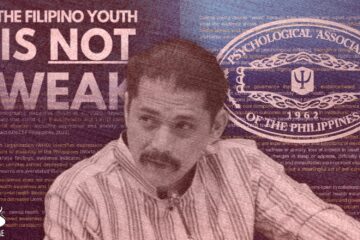
STUDENT GROUPS in the University, including the Arts and Letters Student Council (ABSC), condemned the Supreme Court’s (SC) ouster of Maria Lourdes Sereno as chief justice, saying the decision tramples the country’s democracy.
In a joint statement, student leaders, including ABSC president-elect Rafael Arellano, said Sereno’s ouster is “simply unacceptable.”
“The ousting of CJ Sereno exhibits how democracy in our country is gravely abused and trampled upon. […] The present SC justices became the people’s enemies as they have allowed themselves to become an apparatus of tyranny and oppression,” the statement read.
“It is only a matter of time to become part of history by taking a stand, speaking out, and joining the collective fight of the broad masses,” it added.
Sereno, a known critic of President Rodrigo Duterte, on May 11 was removed from office after an SC en banc session resulted in an 8-6 vote in favor of the quo warranto petition filed by Solicitor General Jose Calida.
Calida filed the quo warranto petition, a legal action that challenges an individual’s right to hold a position, claiming that Sereno failed to declare her Statement of Assets, Liabilities, and Net Worth (SALN) which is a requirement for all government workers in the country.
The statement also read that even though the Duterte administration “attempts to kill our democracy,” it will see democracy “alive and well” as Thomasians, with the masses, will take collective action against it.
“As Thomasians, we will continue to uphold the democratic interests of the Filipino people. As Thomasians, we will defend the judicial independence. As Thomasians, we will fight in the struggle for genuine social change,” the statement concluded.
The UST Central Student Council (CSC), likewise, condemned Sereno’s ouster in a statement, saying the incumbent administration is “outraged by the deliberate targeting of its critics and opposition.”
“Sereno’s removal as Chief Justice is an attack on the independence of the judiciary. It has crippled even more the already weak condition of the checks-and-balances in our government and the principles of separation of powers,” CSC’s statement read.
The CSC called on all Thomasians to uphold the law and due process. “We cannot merely be witnesses as this imminent dictatorship continues to unfold, our institutions weakened, and our constitution disregarded.”
Sereno’s ouster unconstitutional
In a separate statement issued May 12, ABSC said the separation of the executive, judiciary, and legislative branches of the government must be enforced strictly to “avoid abuse of power and to safeguard due process.”
“No branch is greater, and should never encompass the other,” the statement read.
The ABSC also urged the eight justices who voted for the quo warranto to remove political biases and be consistent with the law. These justices are: Associate Justices Noel Tijam, Lucas Bersamin, Diosdado Peralta, Francis Jardeleza, Samuel Martires, Andres Reyes Jr,, Alexander Gesmundo, and Teresita Leonardo De Castro.
“[Do] what is expected of them to do: interpret the law if there is ambiguity and apply the law in absence of ambiguity.”
The ABSC’s statement cited Section 3, Article XI of the Philippine Constitution, which states that the House of Representatives has the exclusive power to initiate all cases of impeachment.
The dissenters of the quo warranto argued that Sereno’s ouster was unconstitutional because a chief justice can only be removed through impeachment. These dissenters are: Senior Associate Justice Antonio Carpio and Associate Justices Benjamin Caguioa, Estela Perlas Bernabe, Mariano del Castillo, Marvic Leonen, and Presbitero Velasco, Jr.
Section 2, Article XI of the Constitution says: “The President, the Vice-President, the Members of the Supreme Court, the Members of the Constitutional Commissions, and the Ombudsman may be removed from office on impeachment.”
In the decision signed by Tijam, he argued that the word “may” does not mean that impeachment is the only way to remove an impeachable officer from his/her position. F



